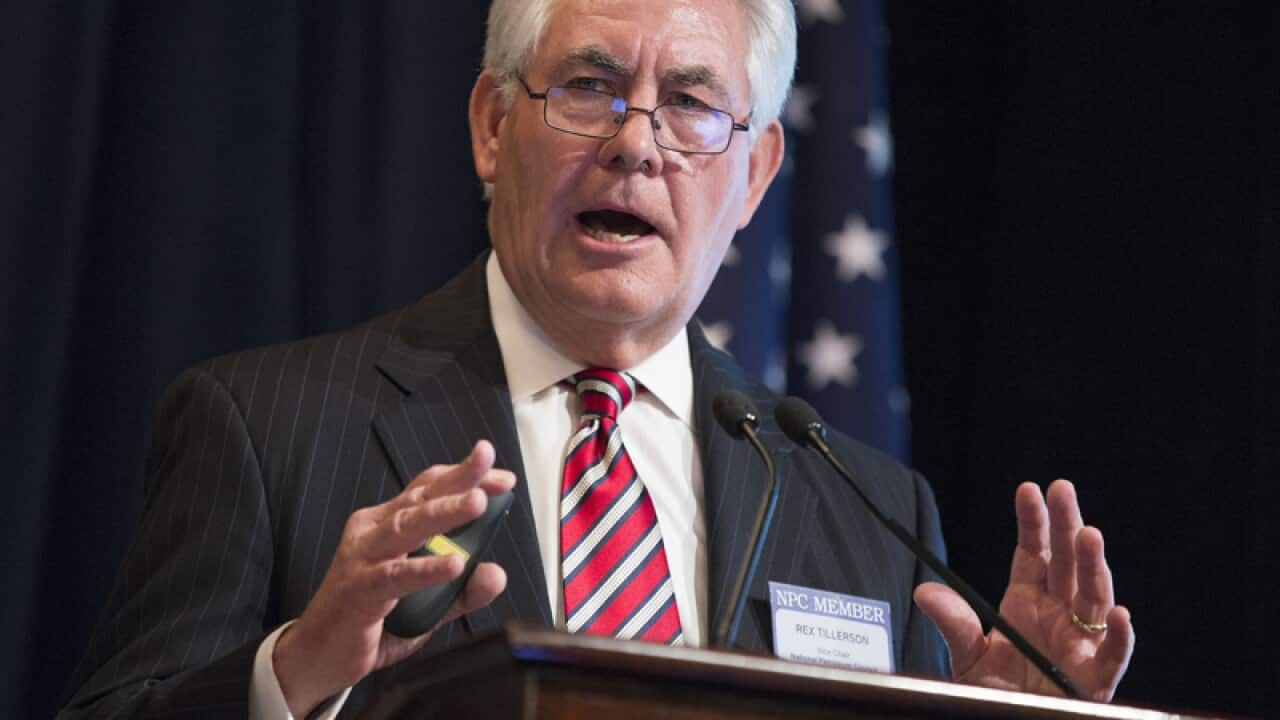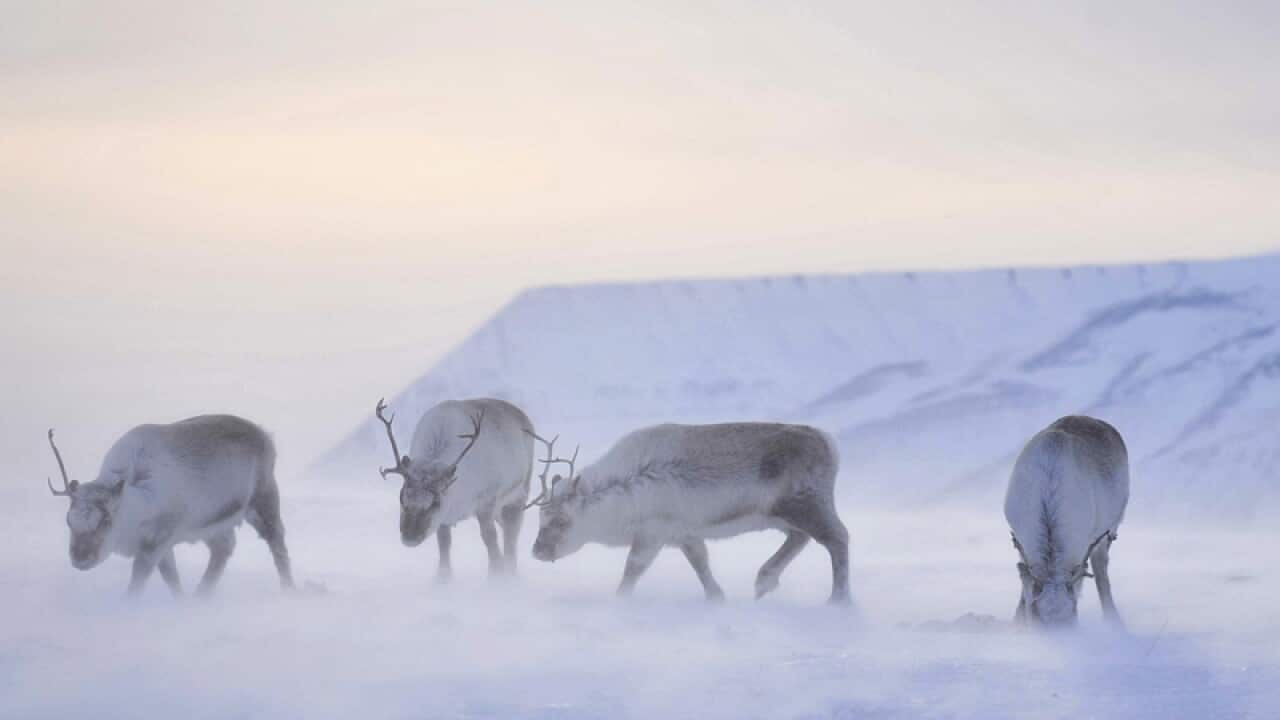Professor Steven Sherwood, Director of the UNSW Climate Change Research Centre, told SBS News there was a sense of "concern and terror" among Australian environmental experts over possible changes to US climate policy when Donald Trump becomes president on January 20.
He said fears "had been growing" since Trump was elected president and were exacerbated following the New York billionaire's announcement on Wednesday that Texas Governor and climate change sceptic
Perry called for the energy department to be abolished in 2011.
In November, Trump's adviser Bob Walker told that the incoming president may scrap the NASA Earth climate research division and hand over its operations to "better placed" agencies.
Related reading

Rex Tillerson picked as Secretary of State
"[Trump's appointments] could affect everybody, I guess the attitude would be somewhere between concern and terror as to what might happen," Professor Sherwood said.
"Maybe it won’t be that bad but nobody really knows. There’s a lot of hostility there towards what we’re doing and we don’t know where it’s going to go.
“There certainly seems to be a lot of people with wacky views, especially against the climate, that the president-elect is choosing, and that would tend to concern anybody who is concerned about the future of the planet."
Professor Sherwood said most of the international community relied on US climate recording instruments, such as satellites and water buoys, to conduct research.
He said a US funding cut would significantly impact Australian research.
"I can't imagine the US would stop providing weather data, but the data used by the research community would be affected," he said.
"That would include research into how to do better decadal forecasting. You need global data sets to do that and a lot of those come from the US, and [it] would inhibit Australia’s ability to do that kind of research, both in the university sector and in the agencies."
Professor Sherwood pointed to the US backed as an initiative that Australia used to predict future weather systems, such as El Niño.
"[Argo] is a global program where floats monitor the state of the world’s oceans," he said.
"All of the global climate observations that the US has been taking, including satellite data and an array of buoys in the central Pacific. There’s the Argo program and lots of other monitoring programs, ozone monitoring and air pollution [monitoring]. Any and all of that could be in jeopardy if there were budget cuts.
"Australia uses that data, certainly the ocean data in the Pacific is very important for seasonal forecasting, or monitoring El Niño."
Scientists archiving data so it doesn't 'disappear'
Scientists in the US and Canada have begun archiving climate change reports amid fears that data 'may disappear' under a Trump presidency.
The University of Toronto in Canada is set to hold a '' event on Saturday where the goal will be to "save environmental data from Trump".
The event, which has been organised in collaboration with a San Francisco-based initiative, encourages people with the relevant skills to preserve 'information and data from the Environmental Protection Agency, which has programs and data at high risk of being removed from online public access or even deleted'.
Scientists are also calling on each other to compile data via website , which has set up a containing reports about sea level trends and carbon levels reports.
Related reading

Reindeer shrink as climate changes
Professor Sherwood said only a handful of Australia's climate experts have emulated their north American counterparts.
“My understanding is that they’re trying to save data sets. That’s a big job to try to do that, but it sounds [as though] a lot of different scientists are jumping in a volunteering to help," he said.
"It probably won’t be necessary, it’s probably good that they’re doing it. If you don’t know for sure whether the administration might try to get rid of some of that data, it would be a lot better to make sure that you have duplicate copies of everything."
Deputy Director of the Center for Science and Democracy at the advocacy group Union of Concerned Scientists, Michael Halpern, told the Washington Post Trump had appointed a “band of climate conspiracy theorists” to lead efforts to transition from the Barack Obama administration.
“They have been salivating at the possibility of dismantling federal climate research programs for years. It’s not unreasonable to think they would want to take down the very data that they dispute,” he said.
“There is a fine line between being paranoid and being prepared, and scientists are doing their best to be prepared. Scientists are right to preserve data and archive websites before those who want to dismantle federal climate change research programs storm the castle.”













